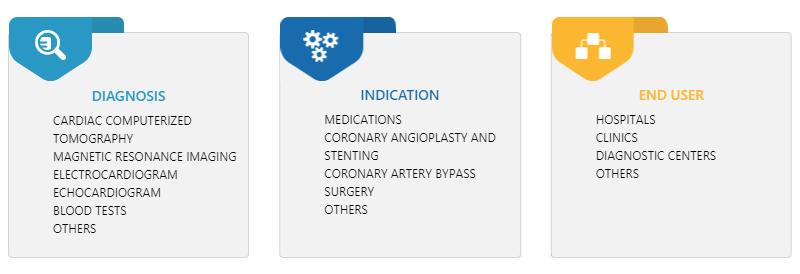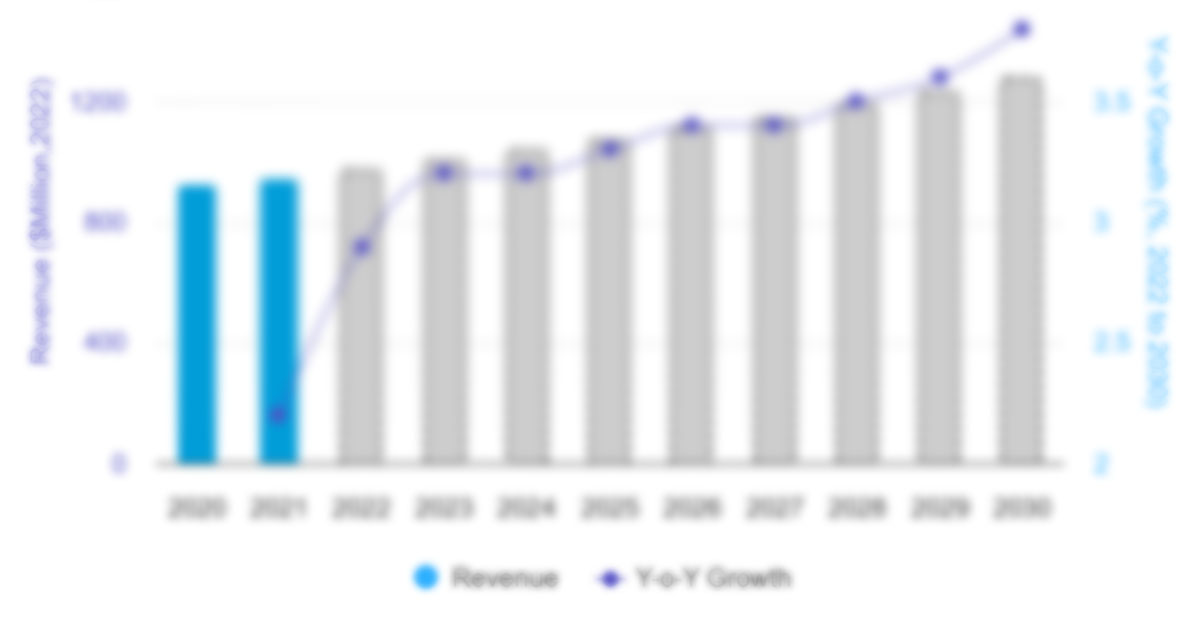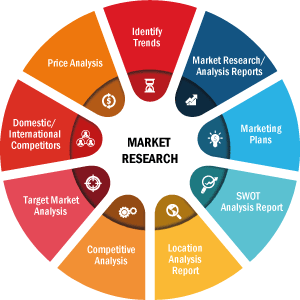The Hemodialysis Catheter Market is expected to register a CAGR of 6.9% from 2025 to 2031, with a market size expanding from US$ XX million in 2023 to US$ XX Million by 2031.
The report is segmented by Product (Cuffed Tunneled Catheter and Non-Cuffed Tunneled Catheter, Non-Tunneled Catheter). The report further presents analysis based on the Tip Configuration (Step-Tip Catheters, Split-Tip Catheters, Symmetric Catheters). The report is segmented by Material (Silicone, Polyurethane). The report further presents analysis based on the End User (Hospitals, Clinics/Dialysis Centers, Home Dialysis). The global analysis is further broken-down at regional level and major countries. The Report Offers the Value in USD for the above analysis and segments.
Purpose of the ReportThe report Hemodialysis Catheter Market by The Insight Partners aims to describe the present landscape and future growth, top driving factors, challenges, and opportunities. This will provide insights to various business stakeholders, such as:
- Technology Providers/Manufacturers: To understand the evolving market dynamics and know the potential growth opportunities, enabling them to make informed strategic decisions.
- Investors: To conduct a comprehensive trend analysis regarding the market growth rate, market financial projections, and opportunities that exist across the value chain.
- Regulatory bodies: To regulate policies and police activities in the market with the aim of minimizing abuse, preserving investor trust and confidence, and upholding the integrity and stability of the market.
Hemodialysis Catheter Market Segmentation
Product- Cuffed Tunneled Catheter and Non-Cuffed Tunneled Catheter
- Non-Tunneled Catheter
- Step-Tip Catheters
- Split-Tip Catheters
- Symmetric Catheters
- Silicone
- Polyurethane
- Hospitals
- Clinics/Dialysis Centers
- Home Dialysis
- Hospitals
- Clinics/Dialysis Centers
- Home Dialysis
Strategic Insights
Hemodialysis Catheter Market Growth Drivers- Increasing Prevalence of Chronic Kidney Disease (CKD): The chronic disease in the kidneys has been on the rise worldwide, infecting millions of patients around the world. Reports from WHO indicate that the cases of CKD have increased due to diabetes, hypertension, and an ever-increasingly aging population. Such an increase needs proper and effective dialysis treatments, thus leading to a requirement of hemodialysis catheters, shifted by earlier intervention and management of disease in the kidneys.
- Technological Advancements in Catheter Design: Technical developments in catheter design and material significantly improved the safety and efficiency of hemodialysis procedures. Newer catheters come with coatings that are anti-thrombogenic, biocompatibility materials, excellent flow dynamics, and a reduction in risk for complications such as infection and thrombosis. Optimistic new patient outcomes also push healthcare providers to develop and implement the newer technologies leading to market growth.
- Rising Geriatric Population: With the global trend of an aging population comes an increased incidence of kidney-related diseases, and thus hemodialysis becomes an essential element in the treatment of elderly patients. Elderly patients are bound to suffer more from chronic diseases and more frequently are in need of renal therapies. Given the continued growth of the 65 and above population, demand for hemodialysis and consequently for hemodialysis catheters is projected to continue to rise.
- Shift Towards Value-Based Healthcare: This has made the transition towards the value-based healthcare model challenging for the hemodialysis market as it becomes more patient outcome-related and also cost-effective health care solutions. Patient care is improved through increased demand in the hemodialysis catheters, and the complications and readmission cost is also reduced. Such a demand makes an increased requirement of excellent-quality and reliable hemodialysis catheters that would further have low risks to the patient with improved patient satisfaction levels.
- Telehealth and Remote Monitoring: The integration trend of telehealth technologies with renal care is an important one influencing the market for hemodialysis. The remote monitoring tools allow caregivers to monitor the conditions of patients and adjust treatments as necessary. The shift is very essential for the patients that are getting treated at home using hemodialysis, where catheters can be watched based on their functionality and complications. Companies that apply telehealth capabilities along with their catheter products are likely to achieve greater adoption levels.
- Sustainability and Eco-Friendly Products: Growing environmental sustainability awareness is very much influencing healthcare sector product development in general and the hemodialysis market. Manufacturers are paying more attention to developing catheters that are more environmentally-friendly, as well as 'green' packaging solutions. This is not just about compliance with regulation but also appeals to the environmentally-aware consumer and healthcare provider.
- Expansion in Emerging Markets: Emerging markets offer significant opportunities in terms of growth in the market for hemodialysis catheters. Improvement in healthcare infrastructure with increased attention towards the care of renal health is leading various countries in Asia-Pacific, Latin America, and parts of Africa. Rising demand for dialysis based on new age facilities shall ensure demand for better quality catheters. Companies may earn a competitive advantage by strategically entering into these markets based on the offering of products designed specifically for their needs.
- Increased Focus on Home Hemodialysis: Rampant advances in technology are making home hemodialysis extremely plausible for most patients. An imperative to provide more patient: centered care, coupled with easier treatment in a comfortable setting, is two highly valid drivers of this trend. With increased acceptance of home hemodialysis comes the ability to design highly specialized catheters tailored to this patient group, with unique emphasis on ease of use, safety, and effectiveness.
- Investment in Research and Development: Ongoing investment in R&D will see innovative catheters, promising to change the life of a patient, continuously drive their way into the marketplace. There is promise in the development of antimicrobial catheters, catheters that are capable of longer dwell times, and catheters with infection rates less than that of current technology. Innovation by manufacturers, academic, and delivery institutions would most likely be accelerated and thus lead to better outcomes and greater market share.
Market Report Scope
Key Selling Points
- Comprehensive Coverage: The report comprehensively covers the analysis of products, services, types, and end users of the Hemodialysis Catheter Market, providing a holistic landscape.
- Expert Analysis: The report is compiled based on the in-depth understanding of industry experts and analysts.
- Up-to-date Information: The report assures business relevance due to its coverage of recent information and data trends.
- Customization Options: This report can be customized to cater to specific client requirements and suit the business strategies aptly.
The research report on the Hemodialysis Catheter Market can, therefore, help spearhead the trail of decoding and understanding the industry scenario and growth prospects. Although there can be a few valid concerns, the overall benefits of this report tend to outweigh the disadvantages.

- Sample PDF showcases the content structure and the nature of the information with qualitative and quantitative analysis.
- Request discounts available for Start-Ups & Universities

Have a question?

Mrinal
Mrinal will walk you through a 15-minute call to present the report’s content and answer all queries if you have any.
 Speak to Analyst
Speak to Analyst
- Sample PDF showcases the content structure and the nature of the information with qualitative and quantitative analysis.
- Request discounts available for Start-Ups & Universities
- Sample PDF showcases the content structure and the nature of the information with qualitative and quantitative analysis.
- Request discounts available for Start-Ups & Universities

Report Coverage
Revenue forecast, Company Analysis, Industry landscape, Growth factors, and Trends

Segment Covered
This text is related
to segments covered.

Regional Scope
North America, Europe, Asia Pacific, Middle East & Africa, South & Central America

Country Scope
This text is related
to country scope.
Frequently Asked Questions
Players operating in the market are Medtronic, BD, AngioDynamics, Amecath, Merit Medical Systems, B. Braun Melsungen AG, NIPRO, Cook, Fresenius SE & Co. KGaA, TORAY MEDICAL CO,.LTD.
Cuffed Tunneled Catheter and Non-Cuffed Tunneled Catheter segment, by product, dominated the market in 2023.
North America region dominated the Hemodialysis Catheter market in 2023.
Increased Focus on Home Hemodialysis act as a opportunity for growth of the market in forecast period.
The Hemodialysis Catheter Market is estimated to witness a CAGR of 6.9% from 202#to 2031
The major factors driving the Hemodialysis Catheter Market are:
1. Increasing Prevalence of Chronic Kidney Disease (CKD)
2.Technological Advancements in Catheter Design
TABLE OF CONTENTS
1. INTRODUCTION
1.1. SCOPE OF THE STUDY
1.2. THE INSIGHT PARTNERS RESEARCH REPORT GUIDANCE
1.3. MARKET SEGMENTATION
1.3.1 Silent Heart Attack Market - By Diagnosis
1.3.2 Silent Heart Attack Market - By Indication
1.3.3 Silent Heart Attack Market - By End User
1.3.4 Silent Heart Attack Market - By Region
1.3.4.1 By Country
2. KEY TAKEAWAYS
3. RESEARCH METHODOLOGY
4. SILENT HEART ATTACK MARKET LANDSCAPE
4.1. OVERVIEW
4.2. PEST ANALYSIS
4.2.1 North America - Pest Analysis
4.2.2 Europe - Pest Analysis
4.2.3 Asia-Pacific - Pest Analysis
4.2.4 Middle East and Africa - Pest Analysis
4.2.5 South and Central America - Pest Analysis
4.3. EXPERT OPINIONS
5. SILENT HEART ATTACK MARKET - KEY MARKET DYNAMICS
5.1. KEY MARKET DRIVERS
5.2. KEY MARKET RESTRAINTS
5.3. KEY MARKET OPPORTUNITIES
5.4. FUTURE TRENDS
5.5. IMPACT ANALYSIS OF DRIVERS, RESTRAINTS & EXPECTED INFLUENCE OF COVID-19 PANDEMIC
6. SILENT HEART ATTACK MARKET - GLOBAL MARKET ANALYSIS
6.1. SILENT HEART ATTACK - GLOBAL MARKET OVERVIEW
6.2. SILENT HEART ATTACK - GLOBAL MARKET AND FORECAST TO 2028
6.3. MARKET POSITIONING/MARKET SHARE
7. SILENT HEART ATTACK MARKET - REVENUE AND FORECASTS TO 2028 - DIAGNOSIS
7.1. OVERVIEW
7.2. DIAGNOSIS MARKET FORECASTS AND ANALYSIS
7.3. CARDIAC COMPUTERIZED TOMOGRAPHY
7.3.1. Overview
7.3.2. Cardiac Computerized Tomography Market Forecast and Analysis
7.4. MAGNETIC RESONANCE IMAGING
7.4.1. Overview
7.4.2. Magnetic Resonance Imaging Market Forecast and Analysis
7.5. ELECTROCARDIOGRAM
7.5.1. Overview
7.5.2. Electrocardiogram Market Forecast and Analysis
7.6. ECHOCARDIOGRAM
7.6.1. Overview
7.6.2. Echocardiogram Market Forecast and Analysis
7.7. BLOOD TESTS
7.7.1. Overview
7.7.2. Blood Tests Market Forecast and Analysis
7.8. OTHERS
7.8.1. Overview
7.8.2. Others Market Forecast and Analysis
8. SILENT HEART ATTACK MARKET - REVENUE AND FORECASTS TO 2028 - INDICATION
8.1. OVERVIEW
8.2. INDICATION MARKET FORECASTS AND ANALYSIS
8.3. MEDICATIONS
8.3.1. Overview
8.3.2. Medications Market Forecast and Analysis
8.4. CORONARY ANGIOPLASTY AND STENTING
8.4.1. Overview
8.4.2. Coronary Angioplasty and Stenting Market Forecast and Analysis
8.5. CORONARY ARTERY BYPASS SURGERY
8.5.1. Overview
8.5.2. Coronary Artery Bypass Surgery Market Forecast and Analysis
8.6. OTHERS
8.6.1. Overview
8.6.2. Others Market Forecast and Analysis
9. SILENT HEART ATTACK MARKET - REVENUE AND FORECASTS TO 2028 - END USER
9.1. OVERVIEW
9.2. END USER MARKET FORECASTS AND ANALYSIS
9.3. HOSPITALS
9.3.1. Overview
9.3.2. Hospitals Market Forecast and Analysis
9.4. CLINICS
9.4.1. Overview
9.4.2. Clinics Market Forecast and Analysis
9.5. DIAGNOSTIC CENTERS
9.5.1. Overview
9.5.2. Diagnostic Centers Market Forecast and Analysis
9.6. OTHERS
9.6.1. Overview
9.6.2. Others Market Forecast and Analysis
10. SILENT HEART ATTACK MARKET REVENUE AND FORECASTS TO 2028 - GEOGRAPHICAL ANALYSIS
10.1. NORTH AMERICA
10.1.1 North America Silent Heart Attack Market Overview
10.1.2 North America Silent Heart Attack Market Forecasts and Analysis
10.1.3 North America Silent Heart Attack Market Forecasts and Analysis - By Diagnosis
10.1.4 North America Silent Heart Attack Market Forecasts and Analysis - By Indication
10.1.5 North America Silent Heart Attack Market Forecasts and Analysis - By End User
10.1.6 North America Silent Heart Attack Market Forecasts and Analysis - By Countries
10.1.6.1 United States Silent Heart Attack Market
10.1.6.1.1 United States Silent Heart Attack Market by Diagnosis
10.1.6.1.2 United States Silent Heart Attack Market by Indication
10.1.6.1.3 United States Silent Heart Attack Market by End User
10.1.6.2 Canada Silent Heart Attack Market
10.1.6.2.1 Canada Silent Heart Attack Market by Diagnosis
10.1.6.2.2 Canada Silent Heart Attack Market by Indication
10.1.6.2.3 Canada Silent Heart Attack Market by End User
10.1.6.3 Mexico Silent Heart Attack Market
10.1.6.3.1 Mexico Silent Heart Attack Market by Diagnosis
10.1.6.3.2 Mexico Silent Heart Attack Market by Indication
10.1.6.3.3 Mexico Silent Heart Attack Market by End User
10.2. EUROPE
10.2.1 Europe Silent Heart Attack Market Overview
10.2.2 Europe Silent Heart Attack Market Forecasts and Analysis
10.2.3 Europe Silent Heart Attack Market Forecasts and Analysis - By Diagnosis
10.2.4 Europe Silent Heart Attack Market Forecasts and Analysis - By Indication
10.2.5 Europe Silent Heart Attack Market Forecasts and Analysis - By End User
10.2.6 Europe Silent Heart Attack Market Forecasts and Analysis - By Countries
10.2.6.1 Germany Silent Heart Attack Market
10.2.6.1.1 Germany Silent Heart Attack Market by Diagnosis
10.2.6.1.2 Germany Silent Heart Attack Market by Indication
10.2.6.1.3 Germany Silent Heart Attack Market by End User
10.2.6.2 France Silent Heart Attack Market
10.2.6.2.1 France Silent Heart Attack Market by Diagnosis
10.2.6.2.2 France Silent Heart Attack Market by Indication
10.2.6.2.3 France Silent Heart Attack Market by End User
10.2.6.3 Italy Silent Heart Attack Market
10.2.6.3.1 Italy Silent Heart Attack Market by Diagnosis
10.2.6.3.2 Italy Silent Heart Attack Market by Indication
10.2.6.3.3 Italy Silent Heart Attack Market by End User
10.2.6.4 Spain Silent Heart Attack Market
10.2.6.4.1 Spain Silent Heart Attack Market by Diagnosis
10.2.6.4.2 Spain Silent Heart Attack Market by Indication
10.2.6.4.3 Spain Silent Heart Attack Market by End User
10.2.6.5 United Kingdom Silent Heart Attack Market
10.2.6.5.1 United Kingdom Silent Heart Attack Market by Diagnosis
10.2.6.5.2 United Kingdom Silent Heart Attack Market by Indication
10.2.6.5.3 United Kingdom Silent Heart Attack Market by End User
10.3. ASIA-PACIFIC
10.3.1 Asia-Pacific Silent Heart Attack Market Overview
10.3.2 Asia-Pacific Silent Heart Attack Market Forecasts and Analysis
10.3.3 Asia-Pacific Silent Heart Attack Market Forecasts and Analysis - By Diagnosis
10.3.4 Asia-Pacific Silent Heart Attack Market Forecasts and Analysis - By Indication
10.3.5 Asia-Pacific Silent Heart Attack Market Forecasts and Analysis - By End User
10.3.6 Asia-Pacific Silent Heart Attack Market Forecasts and Analysis - By Countries
10.3.6.1 Australia Silent Heart Attack Market
10.3.6.1.1 Australia Silent Heart Attack Market by Diagnosis
10.3.6.1.2 Australia Silent Heart Attack Market by Indication
10.3.6.1.3 Australia Silent Heart Attack Market by End User
10.3.6.2 China Silent Heart Attack Market
10.3.6.2.1 China Silent Heart Attack Market by Diagnosis
10.3.6.2.2 China Silent Heart Attack Market by Indication
10.3.6.2.3 China Silent Heart Attack Market by End User
10.3.6.3 India Silent Heart Attack Market
10.3.6.3.1 India Silent Heart Attack Market by Diagnosis
10.3.6.3.2 India Silent Heart Attack Market by Indication
10.3.6.3.3 India Silent Heart Attack Market by End User
10.3.6.4 Japan Silent Heart Attack Market
10.3.6.4.1 Japan Silent Heart Attack Market by Diagnosis
10.3.6.4.2 Japan Silent Heart Attack Market by Indication
10.3.6.4.3 Japan Silent Heart Attack Market by End User
10.3.6.5 South Korea Silent Heart Attack Market
10.3.6.5.1 South Korea Silent Heart Attack Market by Diagnosis
10.3.6.5.2 South Korea Silent Heart Attack Market by Indication
10.3.6.5.3 South Korea Silent Heart Attack Market by End User
10.4. MIDDLE EAST AND AFRICA
10.4.1 Middle East and Africa Silent Heart Attack Market Overview
10.4.2 Middle East and Africa Silent Heart Attack Market Forecasts and Analysis
10.4.3 Middle East and Africa Silent Heart Attack Market Forecasts and Analysis - By Diagnosis
10.4.4 Middle East and Africa Silent Heart Attack Market Forecasts and Analysis - By Indication
10.4.5 Middle East and Africa Silent Heart Attack Market Forecasts and Analysis - By End User
10.4.6 Middle East and Africa Silent Heart Attack Market Forecasts and Analysis - By Countries
10.4.6.1 South Africa Silent Heart Attack Market
10.4.6.1.1 South Africa Silent Heart Attack Market by Diagnosis
10.4.6.1.2 South Africa Silent Heart Attack Market by Indication
10.4.6.1.3 South Africa Silent Heart Attack Market by End User
10.4.6.2 Saudi Arabia Silent Heart Attack Market
10.4.6.2.1 Saudi Arabia Silent Heart Attack Market by Diagnosis
10.4.6.2.2 Saudi Arabia Silent Heart Attack Market by Indication
10.4.6.2.3 Saudi Arabia Silent Heart Attack Market by End User
10.4.6.3 U.A.E Silent Heart Attack Market
10.4.6.3.1 U.A.E Silent Heart Attack Market by Diagnosis
10.4.6.3.2 U.A.E Silent Heart Attack Market by Indication
10.4.6.3.3 U.A.E Silent Heart Attack Market by End User
10.5. SOUTH AND CENTRAL AMERICA
10.5.1 South and Central America Silent Heart Attack Market Overview
10.5.2 South and Central America Silent Heart Attack Market Forecasts and Analysis
10.5.3 South and Central America Silent Heart Attack Market Forecasts and Analysis - By Diagnosis
10.5.4 South and Central America Silent Heart Attack Market Forecasts and Analysis - By Indication
10.5.5 South and Central America Silent Heart Attack Market Forecasts and Analysis - By End User
10.5.6 South and Central America Silent Heart Attack Market Forecasts and Analysis - By Countries
10.5.6.1 Brazil Silent Heart Attack Market
10.5.6.1.1 Brazil Silent Heart Attack Market by Diagnosis
10.5.6.1.2 Brazil Silent Heart Attack Market by Indication
10.5.6.1.3 Brazil Silent Heart Attack Market by End User
10.5.6.2 Argentina Silent Heart Attack Market
10.5.6.2.1 Argentina Silent Heart Attack Market by Diagnosis
10.5.6.2.2 Argentina Silent Heart Attack Market by Indication
10.5.6.2.3 Argentina Silent Heart Attack Market by End User
11. INDUSTRY LANDSCAPE
11.1. MERGERS AND ACQUISITIONS
11.2. AGREEMENTS, COLLABORATIONS AND JOIN VENTURES
11.3. NEW PRODUCT LAUNCHES
11.4. EXPANSIONS AND OTHER STRATEGIC DEVELOPMENTS
12. SILENT HEART ATTACK MARKET, KEY COMPANY PROFILES
12.1. ASTRAZENECA PLC
12.1.1. Key Facts
12.1.2. Business Description
12.1.3. Products and Services
12.1.4. Financial Overview
12.1.5. SWOT Analysis
12.1.6. Key Developments
12.2. BIONET
12.2.1. Key Facts
12.2.2. Business Description
12.2.3. Products and Services
12.2.4. Financial Overview
12.2.5. SWOT Analysis
12.2.6. Key Developments
12.3. KONINKLIJKE PHILIPS N.V.
12.3.1. Key Facts
12.3.2. Business Description
12.3.3. Products and Services
12.3.4. Financial Overview
12.3.5. SWOT Analysis
12.3.6. Key Developments
12.4. MERCK AND CO.
12.4.1. Key Facts
12.4.2. Business Description
12.4.3. Products and Services
12.4.4. Financial Overview
12.4.5. SWOT Analysis
12.4.6. Key Developments
12.5. MIDMARK CORPORATION
12.5.1. Key Facts
12.5.2. Business Description
12.5.3. Products and Services
12.5.4. Financial Overview
12.5.5. SWOT Analysis
12.5.6. Key Developments
12.6. PFIZER
12.6.1. Key Facts
12.6.2. Business Description
12.6.3. Products and Services
12.6.4. Financial Overview
12.6.5. SWOT Analysis
12.6.6. Key Developments
12.7. SCHILLER AG
12.7.1. Key Facts
12.7.2. Business Description
12.7.3. Products and Services
12.7.4. Financial Overview
12.7.5. SWOT Analysis
12.7.6. Key Developments
12.8. SIEMENS
12.8.1. Key Facts
12.8.2. Business Description
12.8.3. Products and Services
12.8.4. Financial Overview
12.8.5. SWOT Analysis
12.8.6. Key Developments
12.9. TOSHIBA MEDICAL SYSTEMS CORPORATION
12.9.1. Key Facts
12.9.2. Business Description
12.9.3. Products and Services
12.9.4. Financial Overview
12.9.5. SWOT Analysis
12.9.6. Key Developments
12.10. WELCH ALLYN
12.10.1. Key Facts
12.10.2. Business Description
12.10.3. Products and Services
12.10.4. Financial Overview
12.10.5. SWOT Analysis
12.10.6. Key Developments
13. APPENDIX
13.1. ABOUT THE INSIGHT PARTNERS
13.2. GLOSSARY OF TERMS
The List of Companies
1. AstraZeneca plc
2. Bionet
3. Koninklijke Philips N.V.
4. Merck & Co.
5. Midmark Corporation
6. Pfizer
7. Schiller AG
8. Siemens
9. Toshiba Medical Systems Corporation
10. Welch Allyn
The Insight Partners performs research in 4 major stages: Data Collection & Secondary Research, Primary Research, Data Analysis and Data Triangulation & Final Review.
- Data Collection and Secondary Research:
As a market research and consulting firm operating from a decade, we have published many reports and advised several clients across the globe. First step for any study will start with an assessment of currently available data and insights from existing reports. Further, historical and current market information is collected from Investor Presentations, Annual Reports, SEC Filings, etc., and other information related to company’s performance and market positioning are gathered from Paid Databases (Factiva, Hoovers, and Reuters) and various other publications available in public domain.
Several associations trade associates, technical forums, institutes, societies and organizations are accessed to gain technical as well as market related insights through their publications such as research papers, blogs and press releases related to the studies are referred to get cues about the market. Further, white papers, journals, magazines, and other news articles published in the last 3 years are scrutinized and analyzed to understand the current market trends.
- Primary Research:
The primarily interview analysis comprise of data obtained from industry participants interview and answers to survey questions gathered by in-house primary team.
For primary research, interviews are conducted with industry experts/CEOs/Marketing Managers/Sales Managers/VPs/Subject Matter Experts from both demand and supply side to get a 360-degree view of the market. The primary team conducts several interviews based on the complexity of the markets to understand the various market trends and dynamics which makes research more credible and precise.
A typical research interview fulfils the following functions:
- Provides first-hand information on the market size, market trends, growth trends, competitive landscape, and outlook
- Validates and strengthens in-house secondary research findings
- Develops the analysis team’s expertise and market understanding
Primary research involves email interactions and telephone interviews for each market, category, segment, and sub-segment across geographies. The participants who typically take part in such a process include, but are not limited to:
- Industry participants: VPs, business development managers, market intelligence managers and national sales managers
- Outside experts: Valuation experts, research analysts and key opinion leaders specializing in the electronics and semiconductor industry.
Below is the breakup of our primary respondents by company, designation, and region:

Once we receive the confirmation from primary research sources or primary respondents, we finalize the base year market estimation and forecast the data as per the macroeconomic and microeconomic factors assessed during data collection.
- Data Analysis:
Once data is validated through both secondary as well as primary respondents, we finalize the market estimations by hypothesis formulation and factor analysis at regional and country level.
- 3.1 Macro-Economic Factor Analysis:
We analyse macroeconomic indicators such the gross domestic product (GDP), increase in the demand for goods and services across industries, technological advancement, regional economic growth, governmental policies, the influence of COVID-19, PEST analysis, and other aspects. This analysis aids in setting benchmarks for various nations/regions and approximating market splits. Additionally, the general trend of the aforementioned components aid in determining the market's development possibilities.
- 3.2 Country Level Data:
Various factors that are especially aligned to the country are taken into account to determine the market size for a certain area and country, including the presence of vendors, such as headquarters and offices, the country's GDP, demand patterns, and industry growth. To comprehend the market dynamics for the nation, a number of growth variables, inhibitors, application areas, and current market trends are researched. The aforementioned elements aid in determining the country's overall market's growth potential.
- 3.3 Company Profile:
The “Table of Contents” is formulated by listing and analyzing more than 25 - 30 companies operating in the market ecosystem across geographies. However, we profile only 10 companies as a standard practice in our syndicate reports. These 10 companies comprise leading, emerging, and regional players. Nonetheless, our analysis is not restricted to the 10 listed companies, we also analyze other companies present in the market to develop a holistic view and understand the prevailing trends. The “Company Profiles” section in the report covers key facts, business description, products & services, financial information, SWOT analysis, and key developments. The financial information presented is extracted from the annual reports and official documents of the publicly listed companies. Upon collecting the information for the sections of respective companies, we verify them via various primary sources and then compile the data in respective company profiles. The company level information helps us in deriving the base number as well as in forecasting the market size.
- 3.4 Developing Base Number:
Aggregation of sales statistics (2020-2022) and macro-economic factor, and other secondary and primary research insights are utilized to arrive at base number and related market shares for 2022. The data gaps are identified in this step and relevant market data is analyzed, collected from paid primary interviews or databases. On finalizing the base year market size, forecasts are developed on the basis of macro-economic, industry and market growth factors and company level analysis.
- Data Triangulation and Final Review:
The market findings and base year market size calculations are validated from supply as well as demand side. Demand side validations are based on macro-economic factor analysis and benchmarks for respective regions and countries. In case of supply side validations, revenues of major companies are estimated (in case not available) based on industry benchmark, approximate number of employees, product portfolio, and primary interviews revenues are gathered. Further revenue from target product/service segment is assessed to avoid overshooting of market statistics. In case of heavy deviations between supply and demand side values, all thes steps are repeated to achieve synchronization.
We follow an iterative model, wherein we share our research findings with Subject Matter Experts (SME’s) and Key Opinion Leaders (KOLs) until consensus view of the market is not formulated – this model negates any drastic deviation in the opinions of experts. Only validated and universally acceptable research findings are quoted in our reports.
We have important check points that we use to validate our research findings – which we call – data triangulation, where we validate the information, we generate from secondary sources with primary interviews and then we re-validate with our internal data bases and Subject matter experts. This comprehensive model enables us to deliver high quality, reliable data in shortest possible time.



 Get Free Sample For
Get Free Sample For